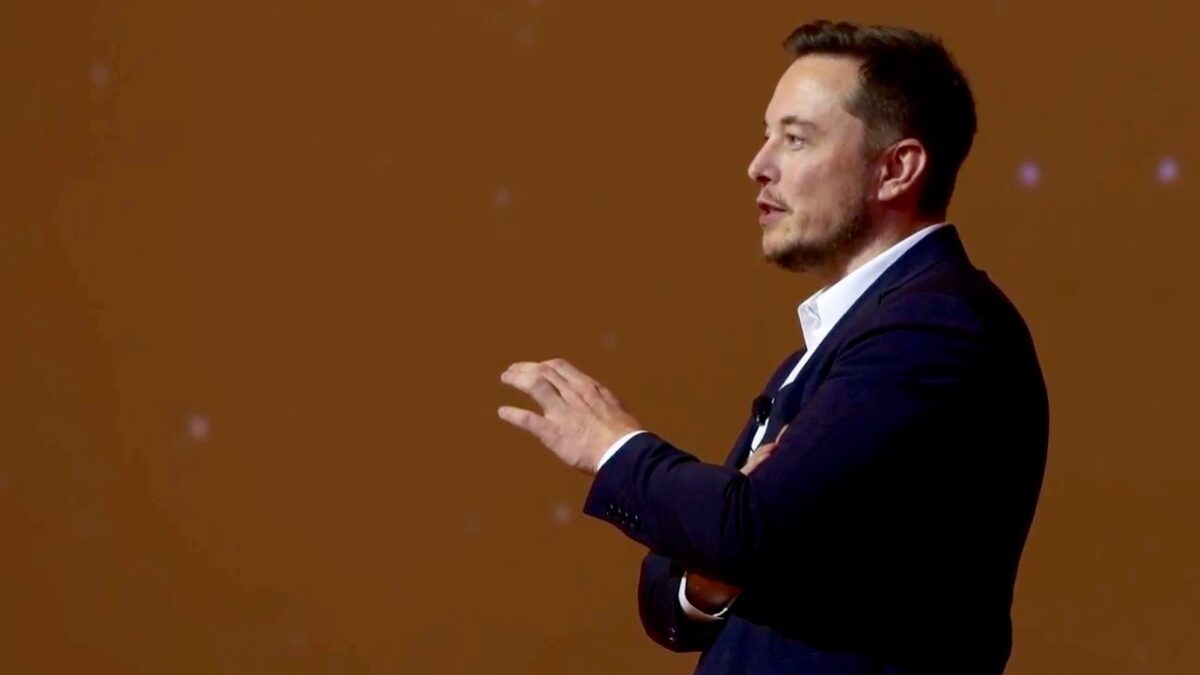Yesterday, amid the ongoing bladder loosening that has accompanied Elon Musk’s takeover of Twitter, leaks started coming from inside the tech company. Politico reported that “Twitter’s top lawyer reassures staff, cries during meeting about Musk takeover.”
The lawyer, Vijaya Gadde, has played a major role in some of Twitter’s most controversial decisions, such as removing former President Trump and censoring The New York Post from the platform for reporting an accurate story about the damning Hunter Biden laptop weeks before his father was elected president amid real questions about his involvement in his son’s corruption.
Gadde’s political motivations don’t seem to be a mystery. Six days before the 2020 election, Politico profiled her under the headline, “Is Twitter Going Full Resistance? Here’s the Woman Driving the Change.” And it’s pretty clear that she contributed to Twitter making at least one terrible decision. Former Twitter CEO Jack Dorsey would later admit the company made a “total mistake” in censoring the story.
By any reasonable measure, Gadde has earned her fair share of criticism — quite literally. Twitter is reportedly paying her just shy of $17 million a year, and one of the main justifications for such exorbitant executive pay, however flimsy, is public accountability. If you must fall on a sword, I imagine an eight-figure bank balance cushions the blow quite a bit.
So on Tuesday, Saagar Enjeti, the co-host of the popular online political show “Turning Points,” tweeted a screenshot of the Politico headline about Gadde crying and observed, “Vijaya Gadde, the top censorship advocate at Twitter who famously gaslit the world on Joe Rogan’s podcast and censored the Hunter Biden laptop story, is very upset about the @elonmusk takeover.” Musk himself decided to reply to Enjeti, adding, “Suspending the Twitter account of a major news organization for publishing a truthful story was obviously incredibly inappropriate.”
That same day, Mike Cernovich, who has a large right-leaning Twitter account, noted that Twitter’s deputy general counsel is Jim Baker, who was previously general counsel of the FBI. While at the FBI, Baker played a very controversial role in the FBI’s discredited investigation into the Trump campaign’s alleged ties to Russia. (In fact, here’s Baker being asked about the process for FISA warrants, which were used by the FBI to spy on the former president: “Do I need to have every one of those details? I mean these things are already quite long. Look, it’s an art, not a science.”)
Musk responded to Cernovich’s tweet: “Sounds pretty bad…”
These two interactions would be pretty thin gruel for a news story on their own merits, but Musk is the richest man in the world, and obviously what the new owner says about Twitter is noteworthy.
Anyway, you wouldn’t believe what the Washington Post did next! Or maybe you will.
Stifling Dissent
At 3:03 a.m. Wednesday, the Post dropped its story on the matter: “Elon Musk boosts criticism of Twitter executives, prompting online attacks: The targeting of employees by Musk’s massive Twitter megaphone is a major concern for workers.”
The horror only compounds from there. “Musk’s response Tuesday was the first time he targeted specific Twitter executives by using his nearly singular ability to call attention to topics that interest him,” intoned the Post. “Supporters of Musk, a prolific and freewheeling tweeter with 86 million followers, tend to pile on with his viewpoints.”
To be clear, Musk never said anything specific about Gadde, except to imply her role in the decision to ban The New York Post was wrong — an opinion that isn’t controversial, and was publicly stated by Twitter’s previous CEO. As for Baker, Musk was commenting on his previous conduct as a public official, which by any accurate assessment was defined by poor judgment. Regardless, “sounds bad” is not exactly committing to a definitive judgment of the man, much less in his current role at Twitter.
(As for what it says that the FBI’s former general counsel went from a disgraceful role in a spy scandal meant to influence the 2016 election to a lucrative gig at a tech company perhaps best known for its clumsy and dishonest attempts to influence the 2020 election… well, let your imagination run wild. There’s no explanation that isn’t disheartening.)
Neither person was “targeted.” The entire story is more accurately restated by the Washington Post expressing shock and dismay that millionaire tech executives might find themselves receiving public criticism from billionaire tech entrepreneurs. That’s a pretty questionable premise for one of the nation’s most influential news outlets to endorse.
As Mike Solana, no stranger to observing the tech industry, put it, “This is a country of over 300 million people. If the rule for acceptable criticism of powerful executives and state propagandists is ‘can’t lead to *someone else* saying something awful,’ you effectively end all vital dissent. Then, that is of course the point.”
Believe me, when you learn how this story was reported, the notion the Post was trying to stifle dissent is not an outrageous assumption. The Post almost entirely ignored the substance of the criticisms leveled at Baker and Gadde and did not make good-faith attempts to include alternate perspectives.
On Wednesday, Enjeti took to Twitter and blasted the Post’s story, which hinged on his interaction with Musk: “WAPO says I did not immediately respond to a request for comment. Complete BS, they emailed *my producer* at 2am EST…7 hours after @elonmusk replied to my tweet with the following RIDICULOUS questions.” Without waiting for Enjeti to respond, the Post published the story in the middle of the night, less than an hour after asking him for comment.
The questions the Post asked were hilariously loaded. Essentially, Enjeti was asked to explain his villainous behavior:
Does [Enjeti] have any concern that mentioning a specific Twitter exec could result in attacks on that exec? What are the responsibilities here? For example, one of the commenters on the tweets made racist comments against Gadde, and said she should be fired.
What does [Enjeti] hope to accomplish by calling out Gadde and getting Musk involved?
Enjeti was rightly disgusted: “This is a great example of how the media smears you. I make a substantive point, randos say something. Now myself and @elonmusk are somehow racist/responsible for them! All to cover up the fact that they substantively agree with censorship.”
Class Warfare
Aside from their desire to prop up an opaque regime of algorithmic censorship produced by an unholy collusion of tech executives and state propagandists, the more benign explanation for the Post’s motivations — and this in no way negates both motives being true — was summed up by Josh Barro: “The idea that the important thing here is the feelings of Twitter employees (especially senior executives) is just so unhinged. Pure class affiliation on the part of journalists, they consider existing Twitter management to be their partners.”
Indeed, class affiliation increasingly explains this bizarre and indefensible media behavior, as well as their growing inability to describe basic realities. Batya Ungar-Sargon has written a very good book on the problem.
However, if there’s a line between class affiliation and class warfare, the corporate media’s pro-censorship crusade has obliterated it. For a long time, I balked at Trump daring to call the media “the enemy of the people,” but it is becoming impossible to ignore that the media’s motives reflect an “Us” vs. “You” mentality. In this case, as Tim Carney notes, “The best way to understand the media is to ask who do they consider ‘us.’ The college educated progressive high-level tech employees are ‘us’ to the average tech reporter.”
As long as we’re talking about class solidarity, it should also be clear that it would be foolish of anyone critical of the current censorship regime to assume that Musk will be a reliable champion of a set of particular values or whatever else you think might be necessary to preserve America’s legacy of prosperity and ordered liberty. There is no need to go out of your way to defend him, he’s just one very wealthy man, and odds are high he will disappoint you.
Maybe he won’t sell his soul to China. Maybe he will get us to Mars. But here and now, Musk is more important for what he has revealed than what he has done.
By merely expressing support for a conception of free speech that Americans almost universally agreed on 15 years ago, he threatens to take a battering ram to the doors of The Cathedral. He is a threat to an existing order that corruptly benefits progressive elites, an unaccountable government, and a media too dumb and pliable to realize there’s no glory in defending someone who makes $17 million a year from mean tweets.
It’s not that any thoughtful American doesn’t have serious reservations about an eccentric billionaire presenting himself as a guardian of the right to free speech. The problem is that we’ve been given a choice between Elon Musk and the demented and hostile worldview chronicled in the Washington Post, and the choice is obvious.









